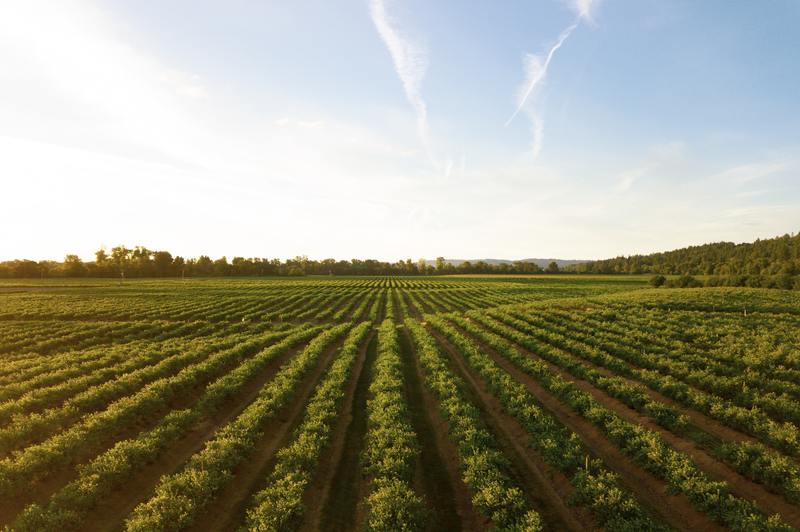In agriculture, crop protection is fundamental to growing more food. If you ask why is pest control important in agriculture, most farmers consider using pest control to protect their crops from damages that agricultural pests bring.

Pest Control And Its Four Methods In Agriculture
Pest control is the management or regulation of pest infestations in a particular area or place. In agriculture, there are four methods farmers are using: physical, chemical, cultural, and biological.
Integrated Pest Management (IPM) In World Agriculture
Integrated Pest Management (IPM) is a strategic approach that plays a vital role in world agriculture. This is because of its environmental-friendly pest control methods for food crops that are healthy and sustainable.
Integrated pest management promotes biological pest control (natural enemies of the pests), especially in rice agroecosystems. This is beneficial for farmers since rice crop is essential to many people worldwide.
Common agricultural pests
- Locusts – These often pass through farmland and can do significant damage to crops.
- True bugs – There are about 75,000 of their species, and they are the most common agricultural pests.
- Colorado potato beetles – This kind of agricultural pest is hard to control because of their resistance to pesticides; their main targets are potatoes, tomatoes, eggplants, and peppers.
- Corn rootworms – This pest causes low yield and structural weakness on crops. Their larvae feed on corn plant roots.
- Japanese beetles – Their larvae eat grass roots while the adults consume agricultural plants’ flowers, leaves, and fruit.
- Mormon crickets – They prefer grasses and shrubs but also cause damage to fruit trees, grains, and forage crops; they can last for about 5-20 years.
- Stink bugs – They are not the kind of pest that you can find at home because this one can cause significant damage in crops such as leaves and stems of plants, juices of fruits, and vegetables.
How Do Pests Affect The Agriculture Industry
If left untreated, pests may lead to potential loss of income due to crop damage and your machinery and property.
1. Damage in crops
Insects are responsible for two significant damages in growing crops: direct and indirect damage. Direct damage occurs when insects eat leaves and make holes on roots, fruits, and stems, while indirect damage transmits viruses or bacteria to crops.
2. Damage to final products
Final or finished products are also subject to pests, such as SPI’s or the stored product insects. They cause damage to grain and commodities, and raw food materials can contaminate the finished products.
3. Damage to equipment and machinery
Rodents such as rats and mice can cause massive damage to farm buildings, equipment, and machinery. When these pests leave machines broken, it will cost you money for repairs or replacement and affect the workforce’s productivity.
7 Steps To Prevent The Building Of Pests In Agriculture
Step #1. Consider the crop location
In growing crops, you must consider the best location suited to the climate, soil, and topography that provides optimal conditions.
Step #2. Select a variety of crops
You can choose crop varieties with disease and pest resistance.
Step #3. Make a strategic planting and crop rotation
Strategic planting like sowing crops in alternate rows can help reduce weeds and improve soil fertility. Crop rotation also helps to lessen the build-up of pests.
Step #4. Soil management
Soil plays an integral part in growing healthy crops. You may consider using soil fumigation (check this article on “is soil fumigation important”) or other methods to keep it healthy and pest-free.
Step #5. Water management
Proper and careful irrigation can control weeds and protect beneficial soil organisms.
Step #6. Plant nutrition optimization
Applying proper amounts of nutrients and pesticides (check this guide to know how to calculate the correct amount of pesticide) at the right time can help the crops withstand the attacks of pests.
Step #7. Good harvesting and proper storage
Good harvesting and proper storage methods can minimize the carryover of disease-causing organisms and weed seeds.
What are the benefits of pest control in farming
- Using pest control can help improve the growth of crops
- There is an increase in crop yields
- It can help to reduce global hunger
- Food prices get lower
- Provides beneficial crop protection
- Prevents pests secondary outbreak
- Protects beneficial insects
- There is an increase in the profit of farmers
What are the hazards of pest control in farming
- The use of pesticides can lead to severe soil pollution
- The populations of beneficial insects can reduce in the long run
- Too much use of pesticides may affect the genetics of plants
- There are harmful effects on farmers’ health
- Contamination of toxic chemicals to food crops
- Excessive use of herbicides and pesticides
- It will develop pest resistance in the long run
- Pesticide poisoning may occur
Conclusion
The answer to “why is pest control important in agriculture” is because it’s the farmer’s best choice to produce high quality agricultural products. Farmer’s care only proves that, aside from a farmer’s soul, no one is too close to the heart of agriculture.
